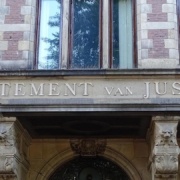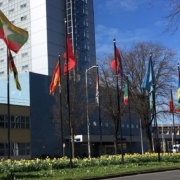Maintenance calculation part 1: children of internationals
Many foreigners live and work in the Netherlands. Particularly in The Hague and surrounding areas, there are many international organisations and companies, including EPO, Estec, OPCW, NATO, ICC, the tribunals as well as Shell and Siemens.
Also in the Amsterdam region many (head) offices of internationally operating companies are located, such as Bain & Company, Philips and KLM. Generally, in salaried employment, a completely different payment system applies for internationals than for national employees. In addition, internationals are usually not subject to Dutch taxation or special rules apply to them (such as the 30% scheme).
All of this affects the maintenance (alimony) calculation for children after the divorce of an international couple.
The standard calculation rules for alimony under Dutch law are not relevant when it concerns an international family.
Costs of children of international family
Child maintenance for internationals is determined by the costs of the children. Most internationals enjoy a salary over € 6,000 net per month. This amount reaches the ceiling of the Nibud tables (National Institute for Family Finance Information) which usually determines the costs of children. Thus, the question arises how the costs of children of internationals must be estimated. The Supreme Court (the highest court in the Netherlands) has stated that reference to the Nibud tables is not sufficient.
The parent entitled to maintenance must prepare an overview of the costs of the children based on the finances of the marriage insofar as this parent is of the view that these costs exceed the amount that follows from the Nibud tables. This overview then forms the starting point for the calculation, rather than the amount from the Nibud tables.
Exceptional costs children of internationals
High incomes often come with (high) childcare costs, such as an au pair or a nanny. Are these costs deemed to form part of the amount as follows from the Nibud tables? This is not completely clear. Case law states that this depends on the facts and circumstances of the case in question, such as the age of the child(ren), the amount of childcare costs and income level of the parents.
Also, these children often have family abroad. Often, family visits replace a holiday, but nevertheless these children travel more than on average. The court normally takes this into account. The degree to which varies from case to case.
If one of the parents and/or the employer already pays the full costs of the international school, the question arises whether this does not justify an adjustment of the Nibud table amount. This is because the table amount factors in a school cost component. To date, the judicial system is reluctant to take this into consideration.
In short
When determining the maintenance costs of children of international families, the needs of a child (such as follows from the Nibud tables) only serves as a starting principle. In addition, there could be extra costs depending on the level of income of the parents and the specific exceptional costs there may be.
If you have any questions regarding child maintenance, please do not hesitate to contact us.
You can read part 2 of this blog series here: Extra costs for children
Dylan Bertsch is a specialist in family law, particularly partner and child maintenance. Diligent and outcome-focused, Dylan helps his clients through advice, mediation and representation in court.
Within family law, Dylan assists with complex divorces, prenuptial agreements, the division of commonly held property, first name changes and maintenance cases.










